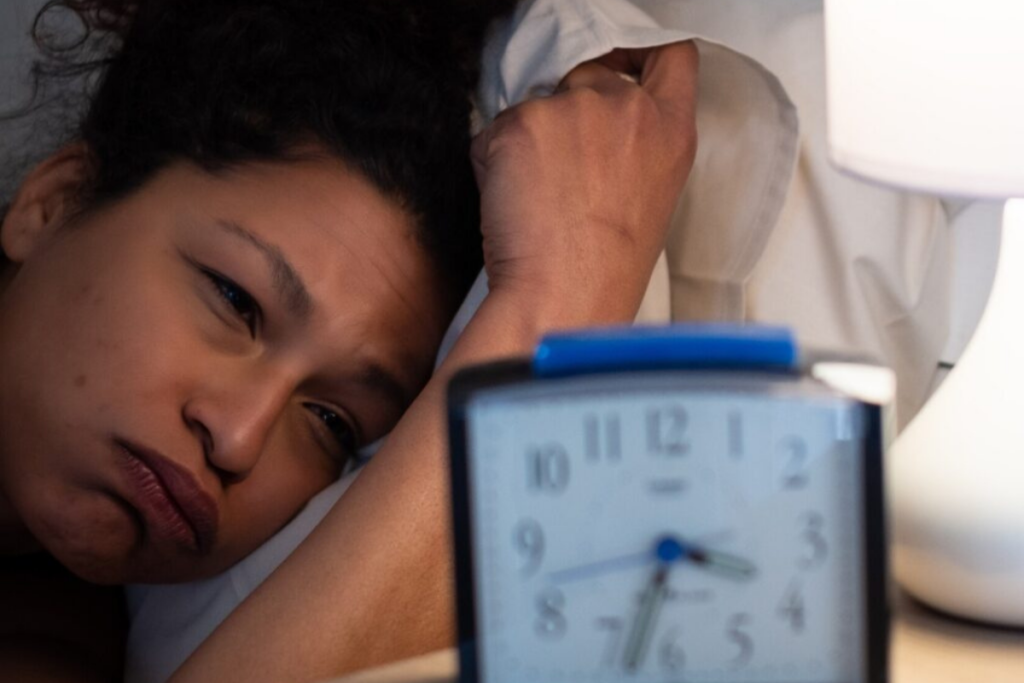What is Insomnia?
What is insomnia? Insomnia is when a person has any sleep related difficulties, mainly falling asleep, staying asleep, or waking up too early in the morning.
Each of these can be extremely irritating and can affect the way that the rest of your day plays out. This is because when you do get up you are still tired and not refreshed.
Over a period of time people who suffer from insomnia tend to develop mood disorders, they lack motivation, the inability to concentrate, lack of energy, and constantly being tired.
People need adequate sleep in order to maintain a healthy and productive life. It has been said that people spend about 1/3 of their lifetimes sleeping.
That certainly seems like a lot of time but proper sleep is needed for a healthy human body including the vital organs and the brain.
The brain really works some magic while a person is asleep. Without sleep the brain begins to lose its ability to function.
While the amount of sleep that a person gets does not seem to be quite as important as the quality of sleep that they get, the two are still completely related.
Insomnia has a very grave effect over a period of time, both physical and psychological. Impaired mind functioning, accidents, anxiety and depression, stress, heart attacks, and headaches are common consequences of insomnia.
Health can deteriorate as the person gets mentally and physically weaker, becomes more irritable, and develops a weakened immune system that can lead to all kinds of illness.
Sleep occurs in a very unique manner. When it is time for sleep, the retina in the eye sends a message to your brain; your brain in turn sends a message to another part of the brain to produce the hormone melatonin, this in turn causes a drop in body temperature and the person begins to feel signs of sleepiness.
While this is going on, the brain starts to deactivate three of the brain’s chemical messengers that are responsible for keeping one alert, histamine, norepinephrine, and serotonin.
So it is very important that the brain gets its rest so that it can function properly on a daily basis.
There are various types of insomnia and various causes as well. Insomnia can be broken up into primary and secondary. Primary insomnia means there is absolutely no medical, physical, or emotional reason for the insomnia.
Secondary insomnia means there is a reason for the insomnia is it medical, psychological or physical. Generally, secondary insomnia is treated by a physician and primary insomnia is treated with behavioral therapy.
The behavioral therapy often includes things such as sleep hygiene, progressive muscle relaxation, stimulus control, cognitive restructuring, and sleep restriction and scheduling.
These have been very successful in treatment centers across the country. It is imperative that a person get relaxed prior to attempting to go to sleep.
Reading a book, watching some TV, or anything relaxing is a great start when attempting to get some sleep but if you lay there and find that you lost all interest in sleeping, get out of bed and do something else until you feel tired again.
Laying there, tossing and turning is not going to do anything but make matters worse.
Insomnia Symptoms
Surely you have heard people claim that they had a horrible time sleeping last night, but imagine if it were like that night after night, month after month.
Although the symptoms can vary the main symptom of insomnia is the inability to fall asleep or to stay asleep. This has to be over a period of at least one month as well to be considered chronic.
Chronic insomnia can be especially dangerous too, not just for the health of the person who has the insomnia but for many other reasons. Consider, stress, depression, and mental illness will either be the reason for or the result of insomnia.
The daytime symptoms associated with insomnia are also of great concern as the insomniac will have a very low ability to concentrate which can be very dangerous depending on if they operate an automobile or what type of job that they have.
Motor coordination is impaired; there is an evident inability to interact socially, and an increased risk of being involved in an auto accident.
Chronic insomnia affects each and every part of a person’s day. They can not perform adequately at work or in any part of their life in general. They are constantly tired and fatigued. This in turn affects their personality and overall judgment.
Insomnia is classified into three different groups: transient which lasts for only a few nights, intermittent which are episodes of insomnia, and chronic which is someone who has experienced insomnia on most nights for at least one month.
As a result this is extremely dangerous when considering health and emotional well being.
The symptoms of insomnia include trouble falling asleep, experiencing restless sleep, in which you wake frequently throughout the night and then have trouble falling back asleep, waking up way too early in the morning, and feeling tired and unrefreshed after they do wake up.
People want to know what they are doing wrong and why it is that they are having this difficulty. The answer to that is that there are many, many factors that could be to blame but some of the most common causes are stress, anxiety, and depression.
However, a doctor should be seen in case there are any medical related problems that are causing the insomnia. This is never a time doe assumption when it comes to your health and well being.
The list is plentiful and those are not the only causes, they are just the main causes.
Often people need to reduce their intake of caffeine, drinking too much alcohol, napping during the day, changes in your surroundings and sleep schedule, noise, and in particular, medication.
Insomnia statistics are actually quite mind-boggling as about half of all Americans will face some form of insomnia throughout their lifetime.
So when it becomes clear that more than just a few nights have passed and one has not gotten a good night’s sleep, then is the time to address the issue before it blazes out of control. This should be done before that person and their loved ones have to suffer.
Steps To Help Your Insomnia
Insomnia is a whole lot more than your body telling you that you have had enough sleep. Actually, insomnia is your body’s way of letting you know that something is wrong.
Insomnia is different in each person, some just can not fall asleep, others wake in the middle of the night and are unable to fall back asleep, and some just wake up much too early.
There can be various reasons, perhaps you are drinking too much caffeine, maybe you suffer from anxiety and depression, maybe you have some conflict or inner struggles in your life, or maybe you are in pain from migraines or arthritis.
Whatever the case, there is a problem that needs to be diagnosed before you will get another good night sleep.
When your body is not allowing you to sleep there is a problem and your body is telling you that something is wrong with your body and or mind that needs to be addressed.
Most adults require about 7 or 8 hours of sleep each night but that can vary depending on the person. Usually a person knows if they have got enough sleep depending on the way that they feel the next day.
If you feel tired and lack energy then odds are that you likely did not get your proper rest.
Research has shown that as people age their Stage 4 sleep, which is the deepest sleep, tends to become shorter and eventually can disappear entirely.
This result is older people waking more during the night and napping more during the day. This is not always indicative of a sleep disorder such as insomnia.
There are some things that you can attempt on your own in an attempt to rid your insomnia such as eliminating caffeine, watching your intake of alcohol, using relaxation techniques, limiting any stimulating activities at least a few hours before bed, and keeping a routine at bedtime.
Make sure that you are not hungry or too full, try taking a nice hot bath, or even try reading yourself to sleep. Make sure that you are attempting to sleep in a comfortable bed.
If you find that you are having a difficult time falling asleep then remove yourself from the bed and go do something else until you become tired again.
Never nap! As much of a drag as this might sound you have to establish a bedtime for yourself and a get up time and stick with it seven days a week.
These are attempts that you can make but if they do not work then make an appointment to see your doctor so you do not lose another precious night’s sleep. You are worth it and you will feel so much better.
Perhaps you might want to try some herbal remedies that are relatively inexpensive and easily accessed over the counter.
Many of these herbal compounds especially Lavender and catnip have been used for centuries to relax and calm people down, therefore allowing them to fall asleep.
Camille McClellan, MD, DNM, MBS
Naturopathic practitioner
McClellan Natural Health, Wellness & Nutrition
Free Naturopathic/Homeopathic Consults Available
Naturopathic practitioner
McClellan Natural Health, Wellness & Nutrition
Free Naturopathic/Homeopathic Consults Available

